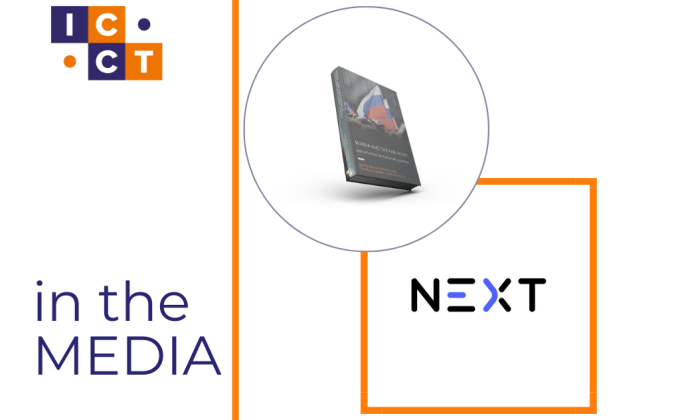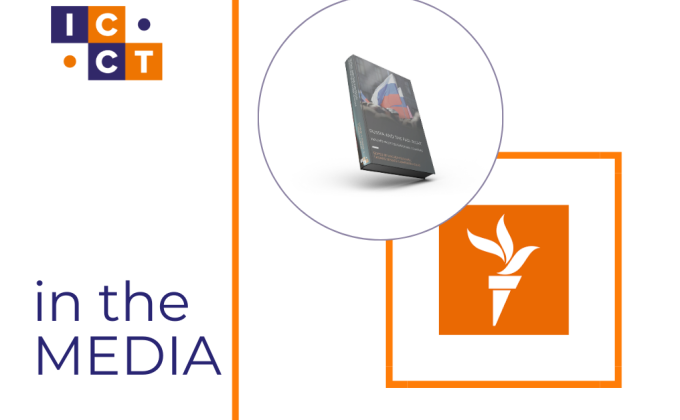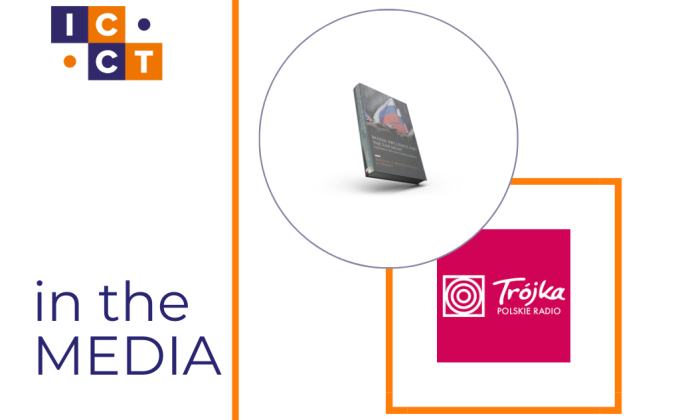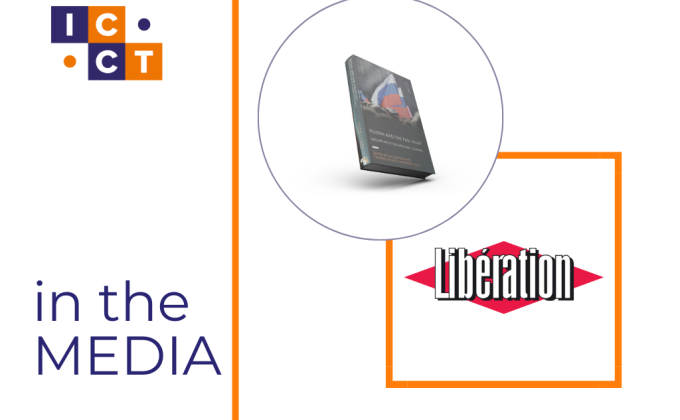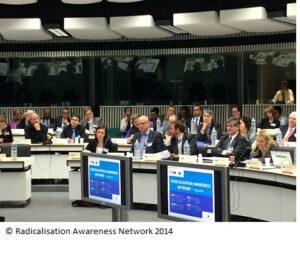 On 16-17 June, the Radicalisation Awareness Network (RAN) Plenary and High Level Conference in Brussels took place. The Plenary gathered together over 150 RAN practitioners to discuss what RAN has achieved to date and the Network’s future strategy. All of the practitioners agreed that the network aspect of RAN has been an overwhelming success with access to over 800 practitioners across the European Union. Discussion centered on the future of RAN with EU Commissioner for Home Affairs Cecilia Malmström describing the forthcoming RAN Knowledge Hub which will send out expert teams to support Member States with issues such as training, exit programmes and family support hotlines, amongst others. The Hub will also steer research and formulate policy recommendations, and Malmström said “hopefully the hub can over time, develop into a Centre of Excellence”. Other discussion topics included the serious problem of European foreign fighters in Syria and the importance of counter-narratives in countering violent extremism. The breakout session focussing on the RAN INT/EXT Working Group, co-chaired by ICCT Director Peter Knoope and Research Director at the Center for Asymmetric Threat Studies at the Swedish National Defence College Dr. Magnus Ranstorp, discussed the past years' activities, which have mainly focussed on the phenomenon of foreign fighters traveling to Arab Spring countries, but primarily Syria. Based on previous meetings, Ranstorp provided a baseline assessment of the problem, including estimates on those travelling, demographics of those travelling and documented cases of returnees. WG member and ICCT Programme Officer Orla Hennessy presented the RAN Declaration of Good Practices for Engagement with Foreign Fighters for Prevention, Outreach, Rehabilitation and Reintegration, which was produced in September 2013, as well as a model for engagement with families that was drafted in May 2014 and will be published shortly. During this breakout session, critical feedback on both documents was received. Three key points were raised that the INT/EXT WG had not yet looked at in depth, and is considering to do so going forward.
On 16-17 June, the Radicalisation Awareness Network (RAN) Plenary and High Level Conference in Brussels took place. The Plenary gathered together over 150 RAN practitioners to discuss what RAN has achieved to date and the Network’s future strategy. All of the practitioners agreed that the network aspect of RAN has been an overwhelming success with access to over 800 practitioners across the European Union. Discussion centered on the future of RAN with EU Commissioner for Home Affairs Cecilia Malmström describing the forthcoming RAN Knowledge Hub which will send out expert teams to support Member States with issues such as training, exit programmes and family support hotlines, amongst others. The Hub will also steer research and formulate policy recommendations, and Malmström said “hopefully the hub can over time, develop into a Centre of Excellence”. Other discussion topics included the serious problem of European foreign fighters in Syria and the importance of counter-narratives in countering violent extremism. The breakout session focussing on the RAN INT/EXT Working Group, co-chaired by ICCT Director Peter Knoope and Research Director at the Center for Asymmetric Threat Studies at the Swedish National Defence College Dr. Magnus Ranstorp, discussed the past years' activities, which have mainly focussed on the phenomenon of foreign fighters traveling to Arab Spring countries, but primarily Syria. Based on previous meetings, Ranstorp provided a baseline assessment of the problem, including estimates on those travelling, demographics of those travelling and documented cases of returnees. WG member and ICCT Programme Officer Orla Hennessy presented the RAN Declaration of Good Practices for Engagement with Foreign Fighters for Prevention, Outreach, Rehabilitation and Reintegration, which was produced in September 2013, as well as a model for engagement with families that was drafted in May 2014 and will be published shortly. During this breakout session, critical feedback on both documents was received. Three key points were raised that the INT/EXT WG had not yet looked at in depth, and is considering to do so going forward.
- Utilising displaced persons and refugees in preventative counter-narratives. With regards to crafting counter-narratives and preventing at-risk individuals from travelling, participants suggested that refugees and displaced persons (from Syria or other affected countries) could be useful in crafting persuasive preventative narratives. It was argued that those who have been most affected are most equipped to dispel myths and provide a realistic picture of what’s happening on the ground. It was of course recognised that not all refugees/displaced persons would be suitable for this kind of work and any should be supported and carefully trained, however it was an interesting notion that had not been raised before.
- Relevant actors should work with Ministries of Foreign Affairs to ensure up to date information and ease of communications with travellers abroad. When working with families, participants emphasised the importance of Ministries of Foreign Affairs to help families get in touch with relatives fighting abroad. Where possible, direct lines to Embassies and Foreign Missions should be set up and publicised. This will a) help the families who are left at home and b) help those who are abroad and give them a safe place to contact if they are having any doubts.
- Involved actors should undertake prevention by proxy. An example was provided by one practitioner who suggested using pedagogues such as teachers/ principals or other trusted community members (e.g. social services or community police) to undertake prevention by proxy where others may not be as successful.
